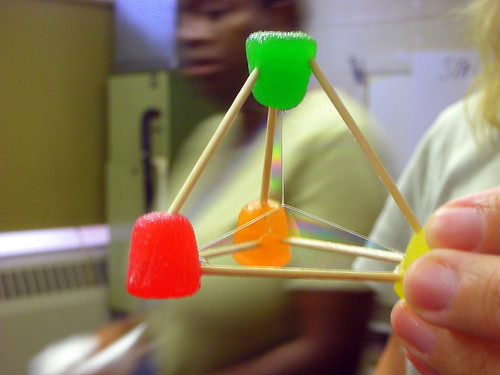
Photo: Old Shoe Woman
Indicator of Future Success
Studies by the Society of Research in Child Development report that a child’s knowledge of number concepts when they enter school is a good indicator of future success. This information should encourage all parents and educators to introduce math at early ages.
Naturally Curious
Children are naturally curious. They are interested in just about everything, using this trait can allow for wide strides to be made in mastering number concepts at a very young age.
Build Confidence
Understanding numbers, shapes, colors, patterns and counting at a young age builds confidence. Knowing how to manage the items in their world creates a sense of ownership with their surroundings, as does learning the lingo. Being able to decipher the language of math and relate it to themselves is an important building block.
Capable
Children are capable of learning deeper math concepts than usually assumed. Given the opportunity to learn math skills at a young age builds necessary connections in their spatial awareness. Everything in math is both concrete and abstract, learning these concepts takes time to develop and mature. Early exposure allows the mind to process the skills needed to proceed.
Easily Incorporated
Luckily introducing math at a young age isn’t difficult. Chatting about putting one sock on each foot or asking them to hand each person at the table one napkin easily introduces the concept of one to one correspondence. Learning to count is one thing, learning how numbers relate to concrete items is another stage in their development.
Helps in Language Development
Activities to develop math skills, also promotes language and literacy skills. Increasing the vocabulary needed to process math helps children discuss their world. These skills are highly necessary when they start to read. Knowing numbers, shapes, “more than” and “less than” gives them a new way of telling and understanding stories.
Progressive
Math builds on a set of knowledge, each concept relating to skills the children already have. Progressively learning at an early age, can side step failures due to gaps in knowledge. Those gaps are what makes many children give up on math in later years.
Ideas to Introduce Math at an Early Age
Many of these activities need little to no preparation. Learning happens all day for a young child. Make the most of the in-between times, errands and daily chores. Incorporating math concepts is easy, but remember to keep the conversations light hearted and matter of fact. Forcing math is a good way to turn them off to learning.
Knowing Numbers
Count everyday things while you go about your day. Learning that numbers are symbols that stand for something concrete is a huge leap in knowledge. Counting becomes more than words to song.
Let them play with number magnets. Teach them the names while they are holding them up. Eventually ask them to show you a certain number. Writing numbers at a young age is more art than math, but it’s good for their fine motor skills. Squeeze in counting during their playtime; ask how many crayons they have or how many blocks are in their tower. With enough counting experience, children learn that five blocks are five blocks no matter how they are stacked. Play a game, like asking them to hop 4 times, or see if they can take 10 baby steps. This is fun and passes the time while waiting for an appointment.
Matching
Equal and not equal are important concepts in math. Have children help match socks, or coins. Play dominos, there are lots of preschool versions out that might be more fun than the traditional set.
Have them copy your facial expression
Make a block tower and have them copy it Play an easy game of concentration, use shapes and fewer cards to start
Classifying and Sorting
While matching concentrates on what is alike, sorting focuses on what is different. Have them sort their dolls according to size, or put their cars in groups according to color or type of vehicle.
Try sorting by their rules. Give them a pile of shells or buttons to sort and see what they come up with.
Play sorting games in the bathtub. See which toys float and which ones sink.
These skills are so basic to adults that it is easy to forget that we ever learned them. Developing these fundamental skills through play will help children progress much faster in both math and literacy.
Source: Free Articles Directory Submission
About the Author
The benefits of early math education is a neglected topic. There are many initiatives in place to foster language and reading, while math has been overlooked. Part of the problem is that many of the people who go into the early education field are not fond of math themselves.



0 comments:
Post a Comment